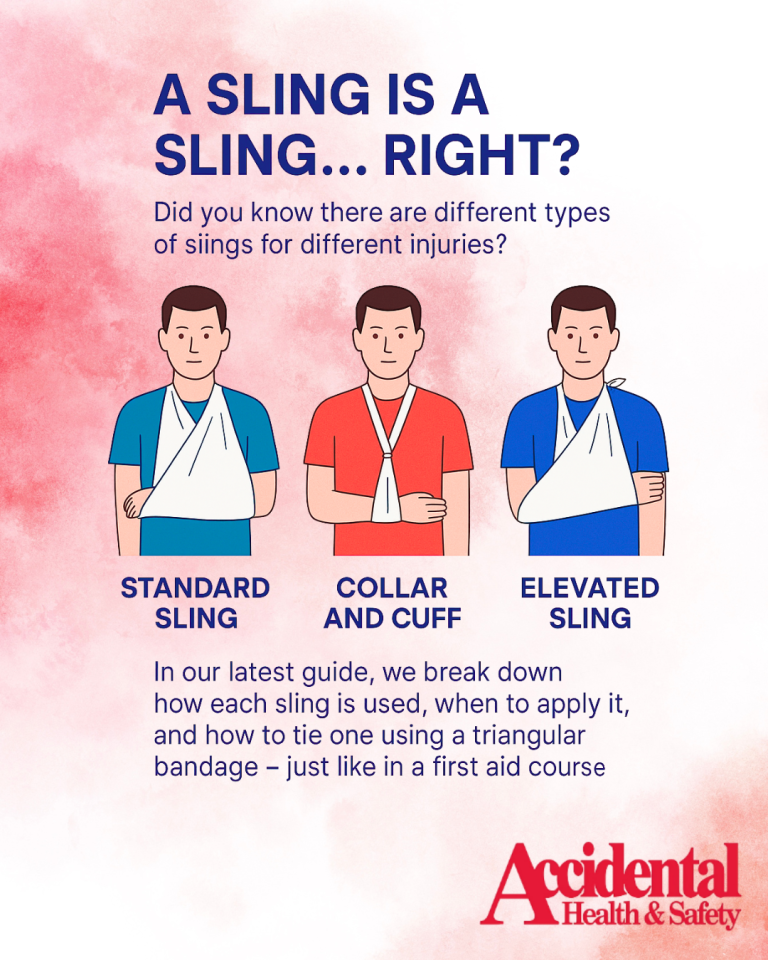Training and Assessment Delivered on Behalf of Allens Training Pty Ltd RTO 90909
4 Important Steps If Someone Is Breathing but Not Waking Up?
You come across someone lying there, unresponsive but breathing. What now? It’s an unnerving situation, but knowing what to do can make all the difference. Here’s how to handle it step by step.
Step 1: See If They Can Respond
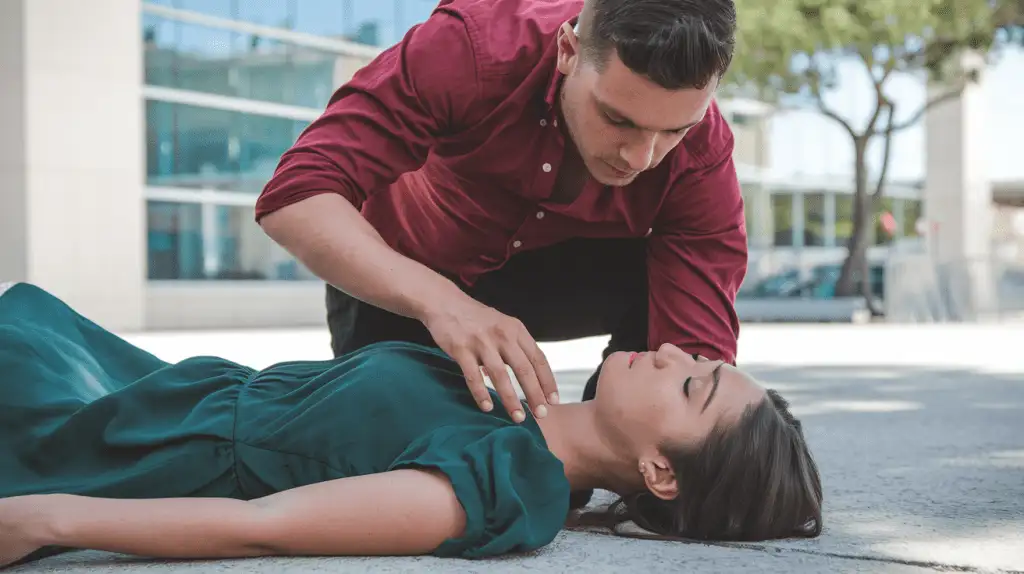
Start by trying to get any sign of consciousness:
- Speak to them: “Can you hear me?”
- Ask them to squeeze your hand or open their eyes.
Even if they can’t talk, a small squeeze or opening the eyes can tell you they’re somewhat aware. If there’s no response at all, they’re considered unconscious, and it’s time to take action.
Step 2: Call for Help
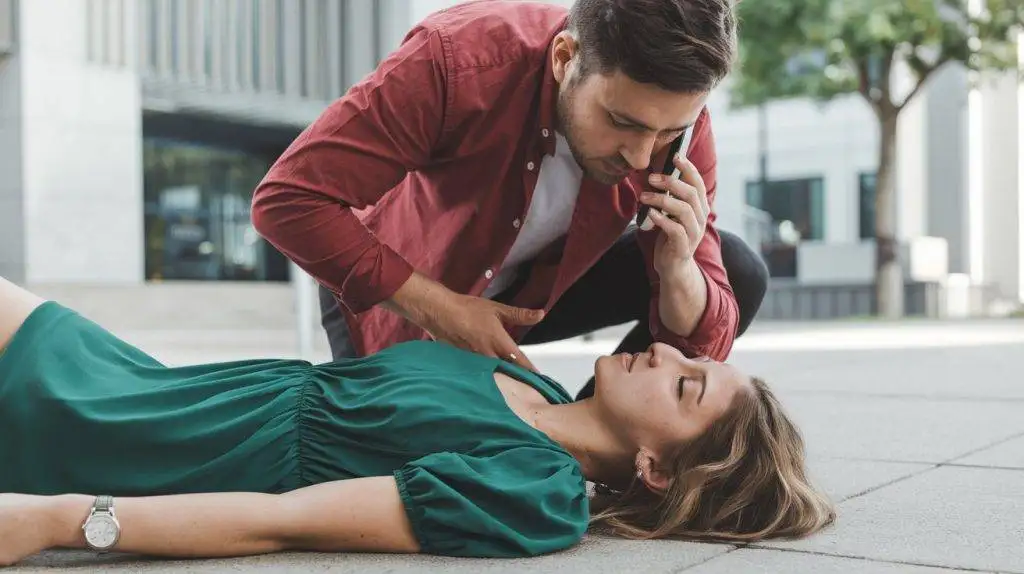
Call 000 (or your local emergency number) immediately. Explain what’s happening: “I’m with someone who is unresponsive but breathing.” Let them know your location and, if possible, what might have caused the situation, like an injury or overdose. Stay on the line and follow any additional instructions from the operator. While you are on the line proceed through the next steps.
Step 3: Open Their Airway
Before doing anything else, make sure their airway is open. If their tongue blocks it, their breathing could stop. Here’s how:
- Gently place one hand on their forehead and the other under their chin.
- Tilt their head back slightly and lift their chin to keep the airway clear.
This simple action can make a big difference and prepares them for the next step.
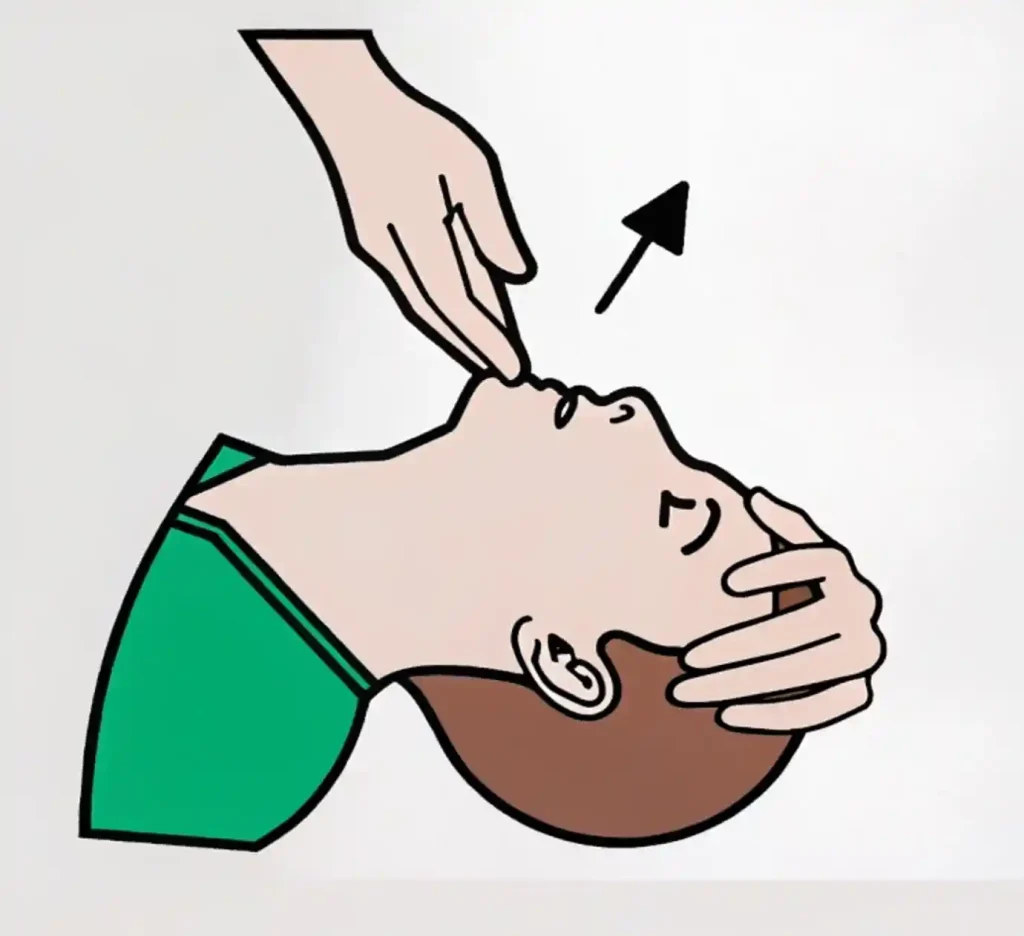
Step 4: Roll Them Into the Recovery Position
Once the airway is open, move them into the recovery position to protect them from choking or further injury. Follow these steps:
- Kneel beside them. Make sure you’re in a comfortable position to move them safely.
- Adjust their arms and legs. Place their nearest arm at a right angle to their body, palm facing up. Bring their far arm across their chest.
- Bend their leg. Lift the knee so it’s bent and stable.
- Roll them. Use their bent knee and arm as leverage. They should now be lying on their side.
- Adjust for stability. Move their top leg so it’s bent at the hip and knee, helping to stabilize them in place.
- Tilt their head back. This keeps their airway open, and the downward position of their mouth allows fluids to drain out.
Stay close, monitor their breathing, and be ready to take further action if their condition changes.
What You Shouldn’t Do (And Why)
- Don’t shake or slap them to wake them up. This isn’t a movie scene, and it won’t help. Worse, if they have a spinal or head injury, rough handling could make things much more dangerous.
- Don’t pour water on them or try to force them to drink. If they’re unconscious, they can’t swallow properly. This could lead to choking or, even worse, aspiration—when fluid enters their lungs.
- Don’t assume they’re “just sleeping it off.” If someone is unconscious, it’s always serious, even if they seem stable. Conditions can worsen quickly, so don’t delay calling for help.
Why Is This Happening?
Unresponsiveness with breathing can happen for many reasons:
- A head injury could leave their brain temporarily unable to respond, even if their body is still functioning.
- Overdose or intoxication might overwhelm their system, leaving them unconscious but with a beating heart.
- Conditions like diabetes (low blood sugar) or epilepsy (post-seizure unresponsiveness) can also cause temporary unconsciousness.
- More critical issues, like a stroke, could be affecting their brain’s ability to function.
No matter the cause, treating unresponsiveness seriously is essential. Time is critical in many situations, so act quickly.
Practice Makes Perfect
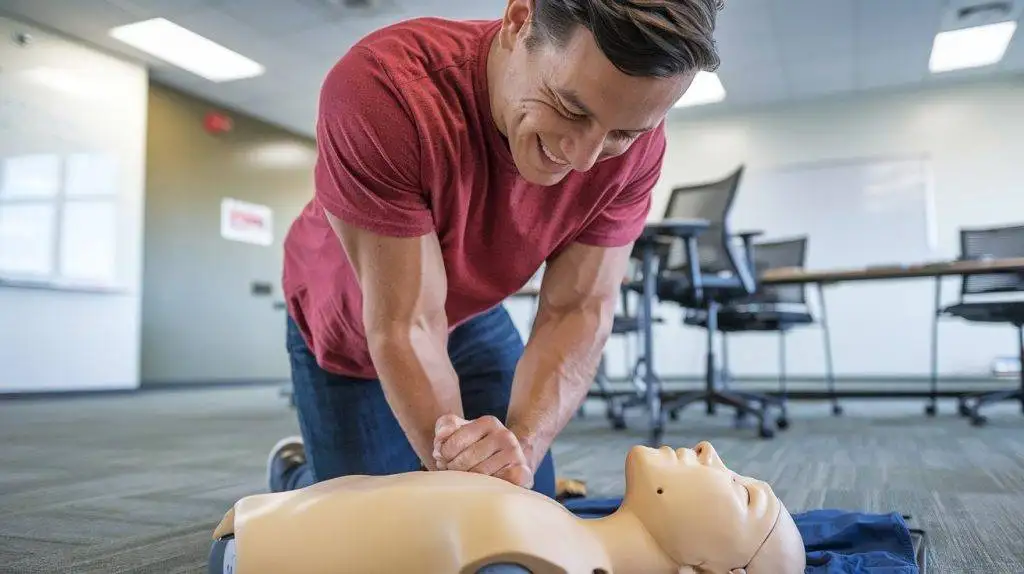
Handling emergencies like this can feel intimidating. That’s why hands-on training is so important. In our CPR and first aid courses in Toowoomba and Wollongong, you’ll learn exactly how to check for breathing, open airways, and place someone in the recovery position step by step.
Sign up for a course today to gain the confidence and skills you need to save lives. Because when the unexpected happens, being prepared makes all the difference.


